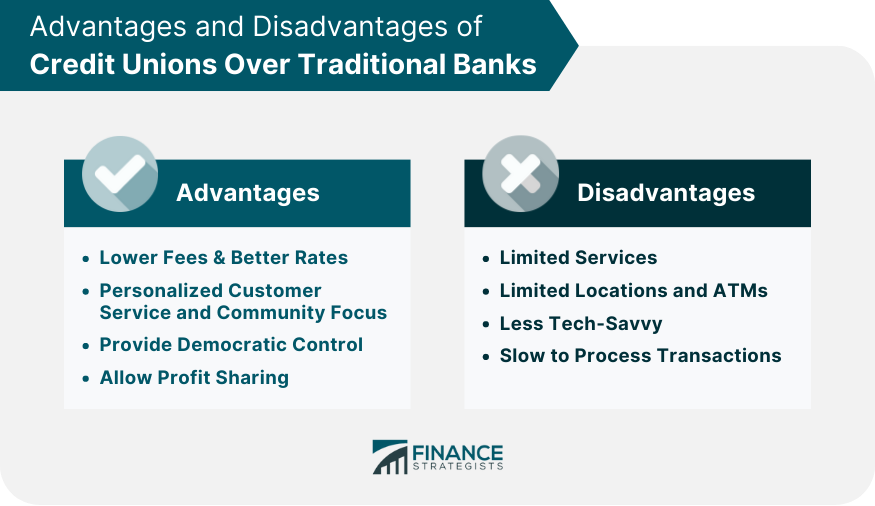Opening the Perks of Lending Institution: Your Overview
In the realm of banks, debt unions stand as a frequently underexplored and unique alternative for those seeking a more individualized strategy to banking. As we explore the ins and outs of credit scores unions, a world of opportunities and advantages unfolds, offering a look right into a monetary landscape where community values and member-focused services take facility phase. From their modest starts to their modern-day impact, comprehending the significance of cooperative credit union could potentially reshape the way you check out and manage your financial resources.

History of Cooperative Credit Union
Lending institution have an abundant background rooted in the participating movement, going back to the 19th century. The idea of lending institution became an action to the monetary requirements of people that were underserved by standard financial institutions. Friedrich Wilhelm Raiffeisen, a German mayor, is usually attributed with starting the first modern-day cooperative credit union in the mid-1800s (Wyoming Credit Unions). Raiffeisen established participating financing societies to help farmers and rural communities accessibility inexpensive credit report and run away the clutches of usurious lenders.
The concept of people coming together to pool their sources and supply monetary help to each other spread rapidly throughout Europe and later to The United States and copyright. In 1909, the first credit history union in the United States was established in New Hampshire, noting the beginning of a brand-new age in community-focused banking. Because then, lending institution have remained to prioritize the monetary wellness of their members over earnings, embodying the participating principles of self-help, self-responsibility, freedom, equity, uniformity, and equality.
Membership Eligibility Criteria
Having developed a foundation rooted in participating concepts and community-focused banking, cooperative credit union maintain specific subscription eligibility standards to make sure placement with their core worths and goals. These standards often focus on a common bond shared by potential members, which could consist of variables such as geographic area, company, business affiliation, or membership in a certain area or association. By requiring participants to fulfill specific eligibility requirements, credit scores unions aim to promote a sense of belonging and shared function amongst their members, reinforcing the participating nature of these banks.
In addition to typical bonds, some credit unions may also extend membership eligibility to family participants of existing members or individuals who live in the very same household. This inclusivity helps lending institution broaden their reach while still remaining true to their community-oriented principles. By keeping clear and clear membership requirements, cooperative credit union can guarantee that their participants are proactively taken part in supporting the cooperative worths and goals of the organization.
Financial Services And Products
When considering the range of offerings readily available, credit rating unions give a diverse variety of monetary items and services tailored to satisfy the one-of-a-kind demands of their participants. Participants often benefit from customized customer solution, as credit rating unions prioritize developing strong partnerships with those they serve.
Additionally, cooperative credit union frequently offer financial education and learning and therapy to aid members improve their financial literacy and make educated decisions. Many credit rating unions also take part in common branching networks, permitting members to access their accounts at a selection of areas nationwide. Overall, the range of Visit Your URL financial services and products used by credit report unions highlights their commitment to fulfilling the varied demands of their members while prioritizing investigate this site their financial health.

Benefits Over Traditional Financial Institutions
Showing a distinct strategy to financial services, credit history unions offer a number of benefits over conventional banks. Additionally, credit rating unions are recognized for their affordable passion prices on savings accounts, loans, and credit history cards.
Furthermore, credit unions tend to have a strong concentrate on financial education and neighborhood support. They typically offer workshops and sources to assist members boost their financial literacy and make sound finance choices (Credit Union Cheyenne WY). By promoting a feeling of community and shared goals, credit history unions can develop a more comprehensive and helpful financial atmosphere for their participants
Area Participation and Social Influence

By working together with these entities, credit rating unions can magnify their social impact and address essential issues impacting their communities. In essence, credit rating unions offer as stimulants for favorable adjustment, driving community development and social development through their active participation and impactful initiatives.
Conclusion
In final thought, credit rating unions have an abundant background rooted in community and participation, providing a varied array of monetary items and services with competitive prices and customized client service. They focus on the economic wellness of their participants over profit, cultivating a feeling of belonging and supplying monetary education and learning. By proactively participating in social influence efforts, lending institution develop a comprehensive and encouraging financial environment that makes a favorable difference in both specific lives and areas.
Friedrich Wilhelm Raiffeisen, a German mayor, is usually credited with starting the first modern credit history union in the mid-1800s - Wyoming Credit Unions. By needing participants to fulfill certain qualification visit site needs, credit history unions aim to cultivate a sense of belonging and shared function amongst their members, enhancing the cooperative nature of these monetary organizations
Furthermore, credit unions frequently offer financial education and learning and therapy to aid members boost their economic proficiency and make educated decisions. On the whole, the range of monetary items and solutions provided by credit history unions underscores their commitment to meeting the diverse requirements of their members while prioritizing their economic well-being.
Furthermore, credit score unions are understood for their affordable rate of interest prices on cost savings accounts, lendings, and credit rating cards.